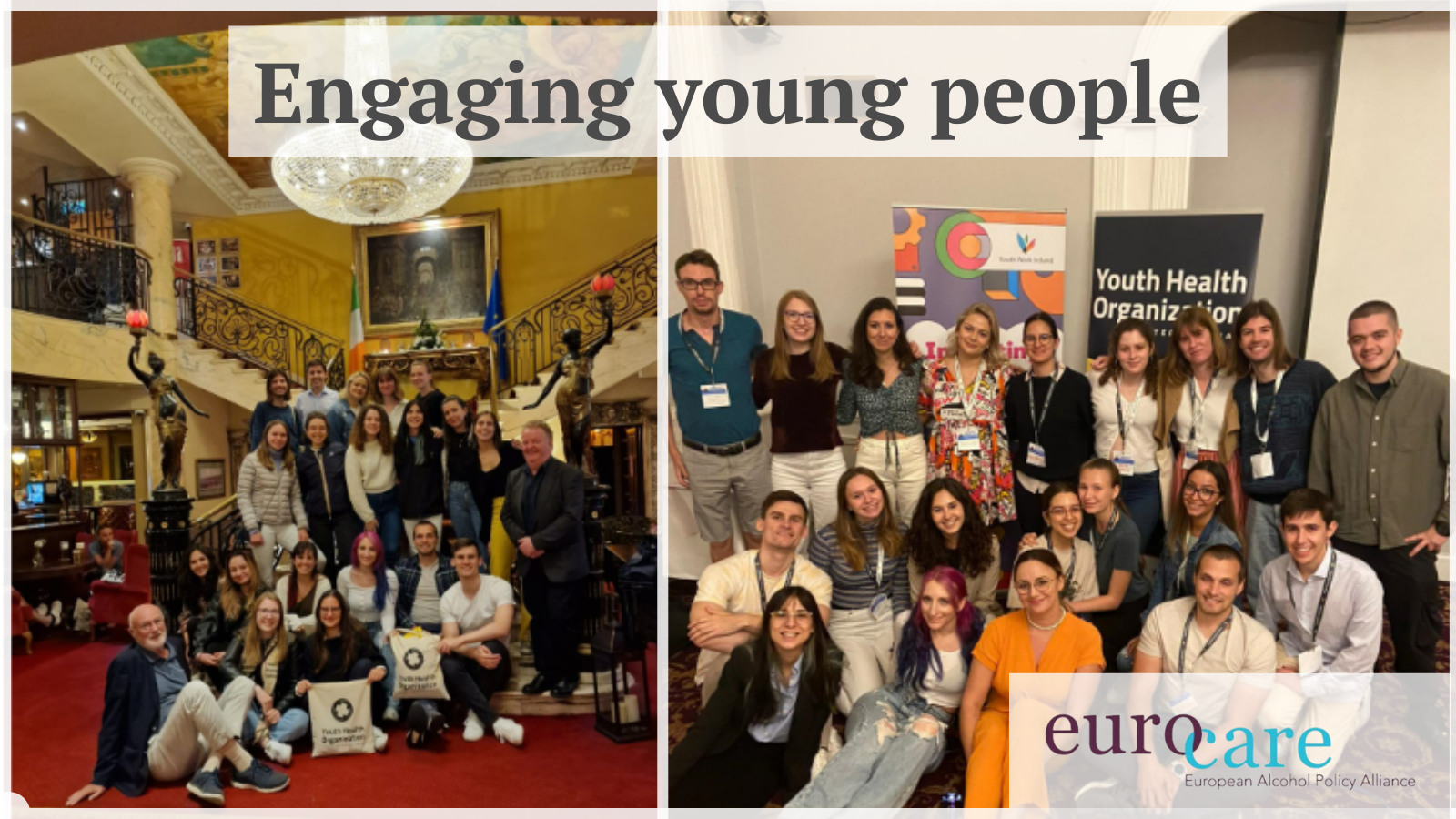Q&A: Engaging young people in alcohol policymaking
Eurocare is committed to ensuring alcohol policy is informed by young people, a commitment which lead our youthful policy officer Martina Pirotta to a youth conference in Ireland.

Where did you go?
At the end of July, I took part in the 3rd Regional European Alcohol Policy Youth Conference in Tullamore, in central Ireland, organised by the International Youth Health Organization (YHO). The conference brought together around 30 young people from a wide range of European countries, Belgium, France, Ireland, Italy, Kosovo, Lithuania, Portugal, Slovakia, Slovenia and Spain (see picture). The group’s areas of interest were as diverse as their nationalities, with representatives of medical and pharmacy student associations, psychology students, young clinicians and public health professionals.
What were the conference’s goals?
It had three main aims:
- Raising awareness and interest among young people and youth organisations about the prevention of alcohol-related harm through alcohol control policies;
- Promoting evidence-based projects and the exchange of good practices for alcohol-related harm reduction;
- Empowering participants with knowledge and skills in relation to health advocacy and alcohol policy.
What was Eurocare’s role?
I participated as a young person myself and presented the work of Eurocare. During the panel session ‘Alcohol in the European Context’, I outlined the role of Eurocare and its mission. I then gave an analysis of the current political situation and discussed the opportunities and threats to progress in alcohol policy. The presentation focused on the key dossiers Eurocare is working on, specifically alcohol labelling and health warnings. Those listening were also invited to take part in the Alcohol Awareness Week on Alcohol-Related Harm (AWARH), by completing a survey and joining workshops. Finally, I participated together with Eurocare President Dr Peter Rice in the closing plenary ‘Measures towards a SAFER region’, where we discussed:
- The role of youth in alcohol policy and ways to get involved;
- Which of the WHO’s “SAFER” interventions would have the biggest impact on the reduction of alcohol-related harm and their implementation;
- How to bring alcohol policy to the top of governments’ agendas? We highlighted how alcohol is not only detrimental to health, but also to the economy and to society. Tackling alcohol harm will also have a direct impact on all the 17 Sustainable Development Goals (SDGs) adopted by all United Nations Member States in 2015.
Which workshops did you enjoy the most?
One of the workshops I enjoyed most was on “stakeholder mapping”. The session investigated its role and how it is done. Each participant was given three stakeholders each and these had to be placed in the correct quadrant of the stakeholders’ graph based on their role in alcohol policy. The x-axis represented ‘Interest’, and the y-axis ‘Influence’. The graph was then divided into four quadrants:
- Bottom left corner (low interest-low influence): Apathetics/Audience
- Bottom right corner (high interest-low influence): Defenders
- Top left corner (low interest-high influence): Latents/Enemies
- Top right corner (high interest-high influence): Promoters The activity highlighted that some stakeholders occupy different quadrants depending on the specific area of alcohol policy.
For instance, the general public might have a strong interest in the labelling of alcoholic beverages but a less interest in pricing policies and taxation. The exercise then carried on with a simulation of how negotiations between different stakeholders would look and which tactics might be used in which area during discussions.
The other session was a simulation of the WHO’s role in the global governance of alcohol policy. Each participant was either representing a Member State or a non-state actor and gave a one-minute statement of their view on the “Tullamore Resolution”. This Resolution was a list of recommended policies to reduce the availability of alcohol. This activity allowed us to strengthen our ability to present arguments and defend them, react quickly, and form allies.
The conference over. But what next?
I hope to be involved in drafting the Tullamore Resolution as a public document and to ensure that it is endorsed by all the organisations involved in the conference.This would be an important commitment to making alcohol a priority.
I am confident that Eurocare will work towards strengthening the partnership with YHO further and ensuring youth engagement with the AWARH awareness week and all Eurocare’s future policy work.



